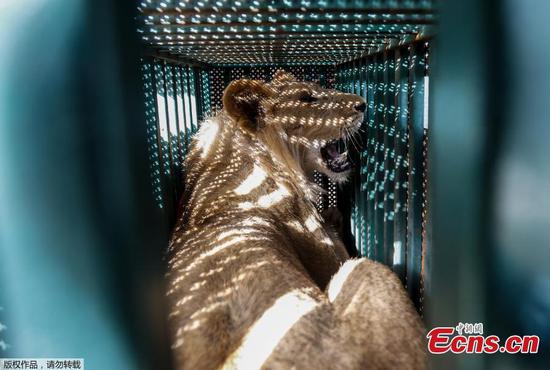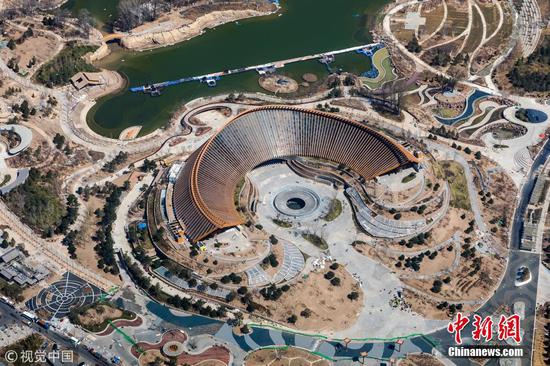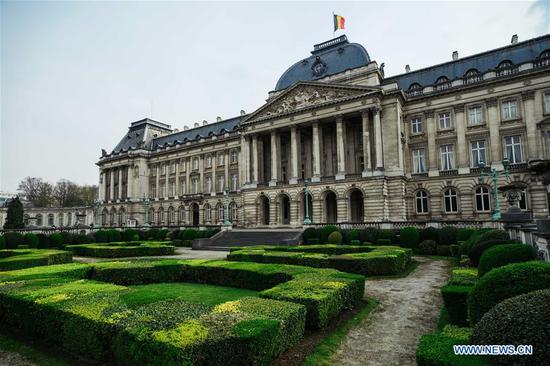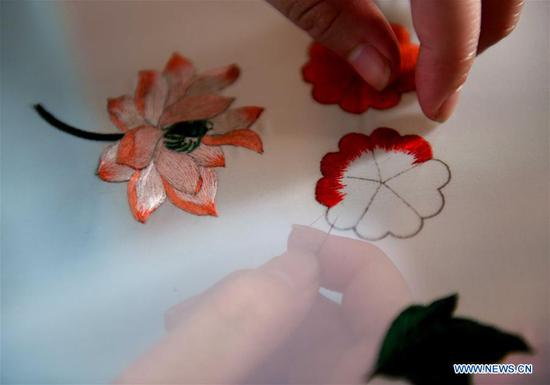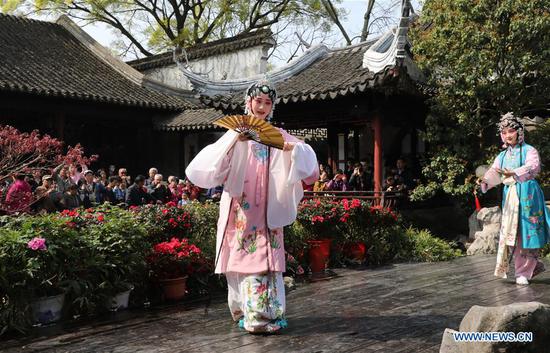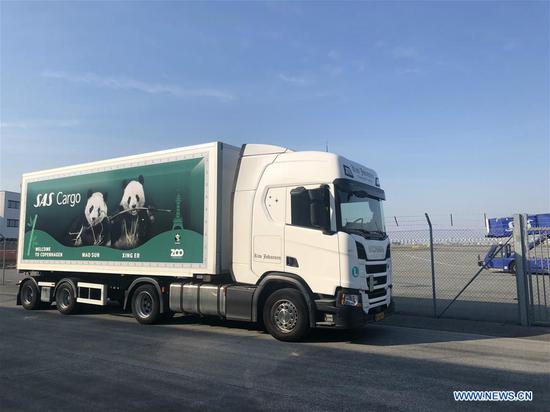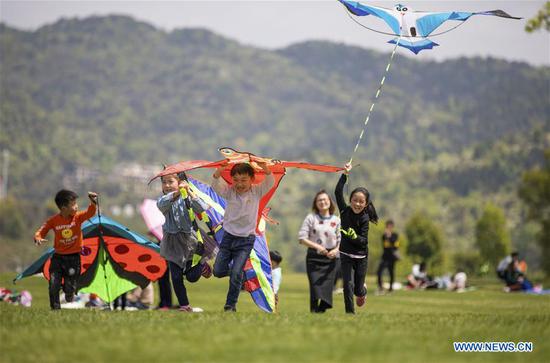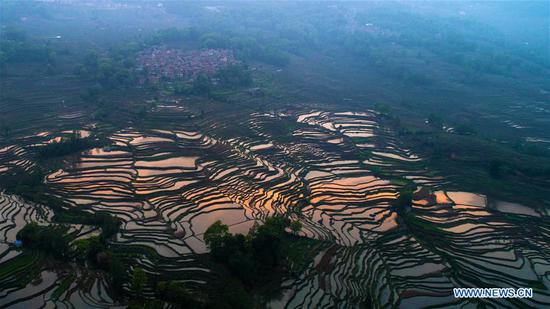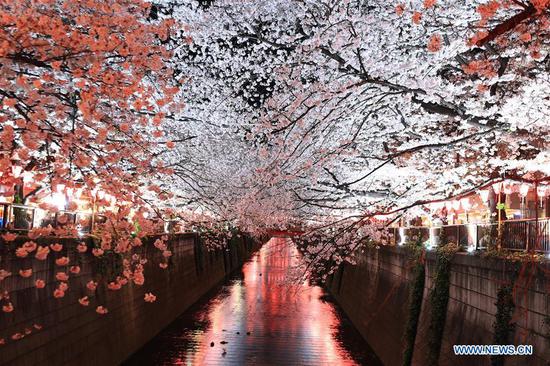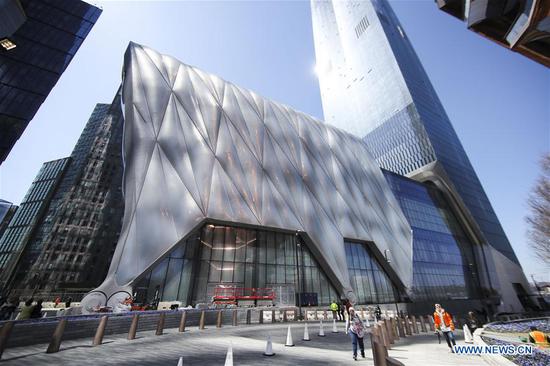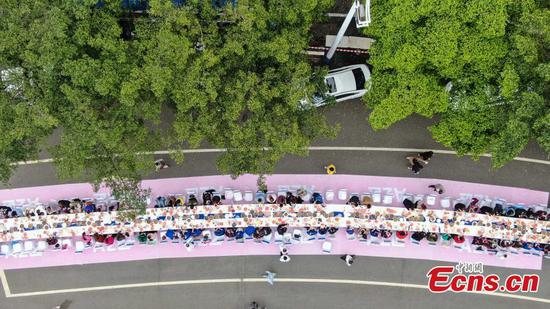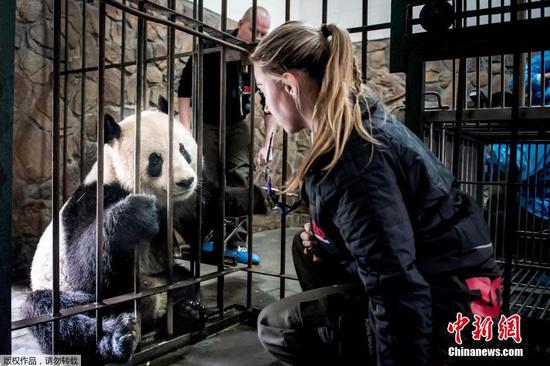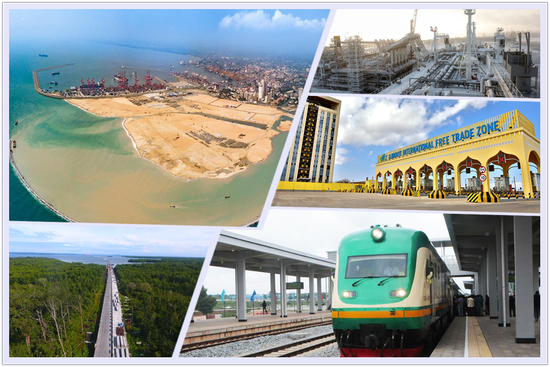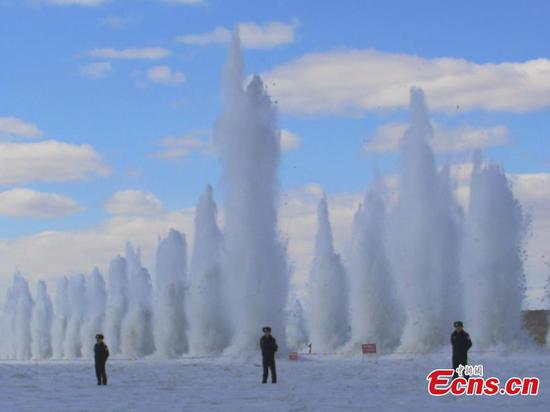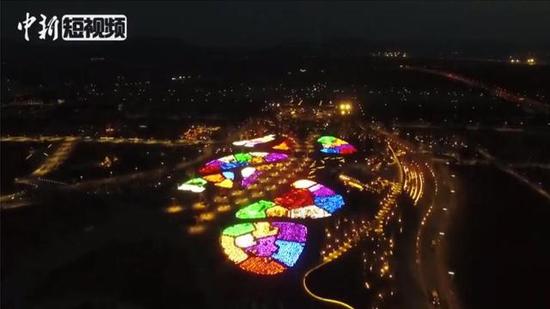
Chinese tourists pose for pictures with a joint patrol team composed of police officers from Italy and China. (Photo/Xinhua)
Tourists from China are greeted with welcome signs in their own language upon landing at Rome's Fiumicino Airport, the largest and most dynamic air hub in Italy.
Going all out to impress their Chinese customers, Italian tourism personnel eye greater opportunities in closer Italy-China commercial and tourism exchanges.
In 2017, Italy registered some 1.5 million Chinese tourists, according to the Chinese Tourism Academy, a public entity under the Ministry of Culture and Tourism.
Altogether, they generated in 2017 over 5 million overnight stays, up 12.4 percent year-on-year, according to Italy's National Institute of Statistics.
Industrial personnel are working head over heels to enhance their services and adjust to the changing tourism market, especially the changing appetite of Chinese visitors.
"The profile of Chinese tourists has changed in latest years, in line with the rapid evolution of the Chinese population, and of its average income," Jacopo Sertoli, president of Shanghai-based Welcome Chinese Company, said, adding that recreation is becoming more important for Chinese.
Meanwhile, "the interest of Italians toward China has evolved and partially changed in recent years, and our offer has adjusted accordingly," said Laura Grassi, chief manager of Italian tour operator Chinasia, the first and the oldest Italian operator to manage outbound flows to China since the early 1980s.
Chinasia has gathered much expertise over more than three decades. "At the beginning, China tours mostly attracted Italian people from the middle-high class, well educated, and with an average age of 40," Grassi said.
Today, clients have various profiles. "We have the young student, who is possibly able to speak a little Chinese and wants to have an experience; we have many couples, and families with children as well," she said.
Not surprisingly, Italy is stepping up education to train personnel for the tertiary sector.
At the European University located in the northwest of the Italian capital, the bachelor's and master's degrees in tourism management constitute key educational offers, with special emphasis on Chinese culture-related education.
"Our graduate school students must take cultural anthropology, because it is crucial for them to learn about habits, traditions, and tastes of emerging tourism inflows," said Alessandra Romano, director of European University's Master's in Tourism Management program.
The master's program focuses more on "market niches" than mass tourism, as explained by the professor, "where high-level professionals and managerial roles are more required".
He said: "Yet, we do believe there is already a 'niche' of very high-level Chinese travelers, who have higher needs, and this is a crucial opportunity we cannot miss."
Italy's hopes in the sector are high in terms of growth and of employment, especially considering the sluggish domestic economy lately.
Tourism contributed some 13 percent to the Italian gross domestic product in 2017, according to a February report by a branch of the National Research Center.
People employed in the industry comprised about 14.7 percent of Italy's workforce in 2017, and some 250,000 new jobs are expected by 2023, according to a recent survey by Florence-based Center for Tourism Studies.
However, industry experts are not yet satisfied, and are expecting to unleash greater potential through the China-proposed Belt and Road Initiative.
"This (the BRI) is something we really should concentrate on doing well," said Marina Lalli, head of the tourism branch of Italy's major business group Confindustria.
"Up to now, we have mainly drawn tourists from Asia - and from China especially - who wanted to see Italy for its way of life and style, but this is not enough anymore.
"We cannot just count on the fact that we have a beautiful country, nice weather, and good food... The interests of tourists are evolving, and the sector goes more and more digital.
"As such, we need to know really well the Chinese market and how it works, to cater to its needs and demands.
"It is very simple: we just cannot lose that market, and let the big numbers from China come to Europe and visit Italy only a few days as a second destination."









